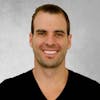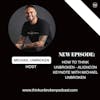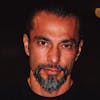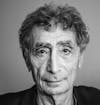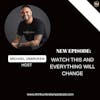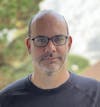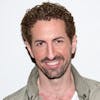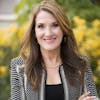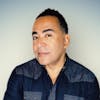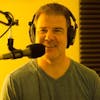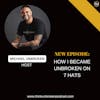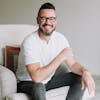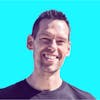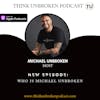How to Avoid Worst Health Conditions | with Dr. Prarthana Shah
In this episode, integrative cardiologist and health coach Dr. Prarthana Shah joins the show to discuss the alarming new link between gut health and heart disease risk, explaining how imbalance in gut bacteria.. See show notes below!
In this episode, integrative cardiologist and health coach Dr. Prarthana Shah joins the show to discuss the alarming new link between gut health and heart disease risk, explaining how imbalance in gut bacteria can lead to plaque build-up and cardiovascular issues over time. She provides practical advice to improve heart health including specific dietary changes to make, optimal exercise recommendations, the importance of regular check-ups, decoding cholesterol numbers, and powerful habit change techniques to build sustainable healthy lifestyles. Dr. Shah also shares her own inspirational story of transforming her health and mindset after a PCOS diagnosis scare while in medical school.
This enlightening conversation sheds light on the urgent need to optimize gut health in order to reduce risk of insidious cardiovascular disease. As an integrative cardiologist and health coach, Dr. Shah provides science-backed yet practical recommendations on exactly how to improve heart health starting today.
Listen to learn more here at Think Unbroken podcast!
************* LINKS & RESOURCES *************
Learn how to heal and overcome childhood trauma, narcissistic abuse, ptsd, cptsd, higher ACE scores, anxiety, depression, and mental health issues and illness. Learn tools that therapists, trauma coaches, mindset leaders, neuroscientists, and researchers use to help people heal and recover from mental health problems. Discover real and practical advice and guidance for how to understand and overcome childhood trauma, abuse, and narc abuse mental trauma. Heal your body and mind, stop limiting beliefs, end self-sabotage, and become the HERO of your own story.
Join our FREE COMMUNITY as a member of the Unbroken Nation: https://www.thinkunbrokenacademy.com/share/AEGok414shubQSzq?utm_source=manual
Download the first three chapters of the Award-Winning Book Think Unbroken: Understanding and Overcoming Childhood Trauma: https://book.thinkunbroken.com/
Join the Think Unbroken Trauma Transformation Course: https://coaching.thinkunbroken.com/
@Michael Unbroken: https://www.instagram.com/michaelunbroken/
Follow us on TikTok: https://www.tiktok.com/@michaelunbroken
Learn more at https://www.thinkunbrokenpodcast.com
Learn more about Dr. Prarthana Shah at: https://buovacare.com/
Support this podcast at — https://redcircle.com/think-unbroken-with-michael-unbroken-childhood-trauma-cptsd-and/exclusive-content
Advertising Inquiries: https://redcircle.com/brands
Privacy & Opt-Out: https://redcircle.com/privacy
Support the Podcast: Become a listed sponsor!
Follow me on Instagram @MichaelUnbroken
Learn more about coaching at https://coaching.thinkunbroken.com
Get your FREE copy of my #1 Best-Selling Book Think Unbroken: https://book.thinkunbroken.com/
Michael: Dr. Prarthana Shah, welcome to Think Unbroken. How are you today, my friend?
Dr. Prarthana: I'm good. How are you doing? It's great to be here.
Michael: Yeah, I'm great. It's amazing to have you. One of the things that you and I talked about in the lead up to this conversation was not only your journey, but the work that you're doing around the gut heart health right now. And really helping people be able to take the most advantage of the body that they're given to live a happy, healthy, fulfilling life. And as many people on this show know, I previously was morbidly obese. I was 150 pounds overweight, smoked two packs a day, drank constantly, blood pressure was that of a 50 year old, everything was out of control. And today my lifestyle is very different. And Part of that is in due to education, and part of that I think is due in a big element and aspect to my willingness to do what is required. And for those who don't know you, tell us a little bit about your background and what has led you down into this field of work.
Dr. Prarthana: Okay, so basically I'm a doctor in preventive cardiovascular medicine and I'm also an integrative health coach. This all started for me while I was in medical school. So I feel like it was a two part story. Initially, I knew I didn't want to do, the usual and I wanted to do something different and actually create a difference. And I got into fitness while I was in medical school. As a way to maybe cope or, find a way to actually, enjoy my life besides just studying and spending all that time at college. And so fitness really found me or I found it. I don't even know how it went really, but it. And it gave me a sense of confidence. It gave me a sense of, belonging. I started CrossFit and I was again obese, fat. I was eating anything and everything on the world. I wasn't looking at my diet or health at all. And somehow getting into CrossFit helped me lose some amount of weight. I was still quite fat at the time. But It was more the confidence in the beginning for me that really got me sticking and I got good at it and I got good fast and so that was something that made me feel like I was worth it in a way and that I was suddenly very capable and the second bit was really, I was, I had some issues with my health and so I visited the doctor and that is really the turning point for me because he told me that it was borderline PCOS at the time. I was working out six days a week and things like that. So yeah, she told me that my exercise was preventing it from going into full blown PCOS, but I needed to be looking at my diet and things like that, which I wasn't doing at that time as much as I should have. And that really was the turning point for me where I made it like a hundred percent and I made the changes and I got really healthy. I got really fit I was very conscious about what I eat. I used to be eating fried foods and you know saturated fats and things like I stopped everything lost about 15 odd kilos of weight, which is about 20, 30 pounds. I was about 63. But because of the PCOS and that thing really was the turning point for me at that point in time. And I felt like suddenly I was this new person, I was so much fitter. I was healthier, more confident. I was glowing. My skin was better, all of that. I was viewed differently by people, although that is not something that people should be doing essentially. I just feel like I was being respected more. I was being taken more seriously and It just changed my perspective on life, and I'm now addicted to this kind of life really.
Michael: I love that. For me, that's one of the things that, you know, whether or not you like to admit it, the world is going to see you differently. That is the nature of the world. We are always judging people. It is a part of the journey. I wish we would just openly admit it and be okay with it. I think what's important though, and probably the thing to know, is how you feel about yourself, especially when you're on that journey is a big part of how I look at the world is through this eye of if I feel good about myself, when I look in the mirror, if I'm staying within my boundaries, my values, my virtues, my morals, who it is as a man. I do not care about what the outside world thinks about me. I in fact could not care less. And so what I think is really interesting is like you're in medical school, you're getting ready to become a doctor and yet you're tremendously out of shape. And it's okay, wait a second. There's a big like disconnect here, but you do see this in the medical field all the time. You're overstudying overworking yourself. God knows what it takes to actually become a doctor. I passed. That is not for me, but I'm so curious, like as you were in that journey, you started, you said confidence, right? I think that's a big key of the cornerstone that is missing in so many people's lives. What was it like for you to start to get confidence, to lose the weight, to have a different understanding of your body, of who it is that you were in the outside world? What started to transpire for you mentally in that journey?
Dr. Prarthana: I think mentally also I was going through a tough time at the time I lost my grandmom at that time. I was going through some stuff in college with friends and stuff So it was anyway a bit I wasn't the best mentally at that time, but I also feel like when I started exercising, I felt a new sense of belonging and suddenly being able to, lift that kind of weight because with CrossFit, you lift so heavy and you do these things that are not normal for people who even go to the gym every day. They just, it's quite out there, crazy. So I feel like, looking at yourself and looking at the fact that you're able and capable of doing such things really boosted my confidence levels, helped my mental health. I felt better, like you said earlier, when you said that you don't care about what the world thinks and what people think. I just felt like that switch happened for me at that point when I started getting healthy and fit. Just seeing this much better evolved version of myself was, really rewarding to me.
Michael: Yeah. And it is, and here's the hard part. You have to earn it. And I think that also applies like to our health. So you're, in medical school, you're getting deep into this understanding of probably our most important organ, our heart, our health in this arena. Like, why did you, why, before we get into kind of the details and the meat of this conversation around health, why did you decide to go that path? And why was it important to you?
Dr. Prarthana: So I always enjoyed a cardiovascular medicine and that sort of system while I was in med school and It I mean it I felt like it was something that was calling to me in a way But I knew at the end that I didn't want to do the very traditional thing. And so I found preventive health and also because I was exercising at that time seeing the changes happening to my body like my when I go my metabolic health. And when I check it, I'm like 19 or 20, which is like much younger than I actually am. And so just seeing those kinds of things and knowing that this is preventable and reversible and seeing that this is a new and emerging field, it intrigued me, and that's why I decided to get into it.
Michael: What was the part about it that intrigued you?
Dr. Prarthana: The fact that, a lot of people look at a heart attack or heart disease and feel like, okay, I'm done now, I can't do this, I can't do that. They restrict their lives and they don't even know or a lot of people actually, a lot of these risk factors are actually modifiable and a lot of people are doing these kind of things and are not looking at the fact that they're modifiable and that they can actually, reverse their risk and they still continue to do it even after being detected with heart disease and things like that. And just the fact that it is and looking at all the emerging data now and seeing how you can actually turn your life around, that sort of inspired me to help because I realized that this is a field I can actually help people get healthier because with things like maybe cancer and things like that, there is sometimes only so much that you can do while you're choosing your post graduation. So I felt like this is something I can actually create change in.
Michael: I love that and I remember when I was young, I was the one at home when my grandmother had a heart attack and I was the one to call 911 and at the time she was smoking, she was drinking, she was vastly overweight, I imagine the stress of her life of raising her own grandchildren does not help and trust me, I probably played a role in that, and she had this heart attack and the doctors put a stint in her heart and she came back home and nothing changed. She continued to smoke, continue to drink, continue to consume fast food, and you mentioned something that this heart disease and heart attacks are preventable. And I can't help but wonder, what are some of the, let's go into this. One of my things that I try to take very seriously is my health. It's my number one priority over really everything, including business, relationships, friendships, everything, because, sick man only has one wish, and that's health. Heart disease, heart attacks, strokes, these things are really a pandemic. If you think about it, they're taking so many lives every single day, especially in the states and in westernized countries where you have these people who are on this diet of fast food and soda pop and junk and stress and chaos. If we were to, really create an impasse and help people start along this journey of taking control of their health, especially their heart health, where do we begin?
Dr. Prarthana: So you have to look at the risk factors really. So you have to look at the various, they're mostly modifiable lifestyle risk factors. So the number one risk factor is of course, smoking. That is the first and foremost reason for preventable deaths in the entire world. Actually, the next is high blood pressure and high cholesterol. These are the three largest after this. You look at diabetes, you look at CRP, you look at your sedentary lifestyle, you look at your diet, things like that. Obesity is a big cause for heart disease. Now all these things are really very modifiable except for maybe diabetes if you already have it. But still managing that is something that you can do and not just let it go haywire.
Michael: Let's go a little bit deeper into it because I want to really leverage your expertise here. When we're looking at this, what are some of the other risk factors? Are there certain things that are innately a part of DNA or genetics that we need to be aware of? Is it just simply our diet, our exercise? What are some of the things that we can control and we can't control?
Dr. Prarthana: One of the things that you really can't control, but it is only one of the many risk factors is LPEA. This is a genetic predisposition, so if you inherit this from your parents or something like that, this gives you a genetic predisposition to heart disease, but again, this is something that is one of the many. So this is really a role of the multiple risk factors at play and not just one. So controlling all that you can control reduces your risk very drastically. Like I would say between a 60 to 70 percent reduction in risk if you get your risk factors in check, the ones that you can modify, I would say, because things like these genetic things, like even if you have diabetes, okay, so if you exercise every day, if your sugars are in check, you really won't go there unless you push yourself there.
Michael: When, we look at this and we talk about these preventable things, I think so much of it really has to do with mindset, right? Because as I mentioned, my grandmother has this heart attack, she comes back home, she's still smoking, she's still drinking. And the doctor said to her, you should probably stop doing these things. And Turns out she didn't. She ended up having, I believe, another two heart attacks. She had four stents, a pacemaker, and she ended up falling into a coma when I was 17 years old. And I can't help but think there just must be a tremendous amount of people who come and they sit with a doctor like you or like an other and they just don't change anything. Why is that? And what can we do to support people in actually creating change in their life?
Dr. Prarthana: So I feel like a lot of people, it's the mindset. The first thing really is the mindset. They don't believe that they can actually change, or they're so used to doing the things that they do. And they maybe get a certain joy out of it or whatever, and they're not able to let go of those certain things, and somewhere they let their health even go, because they don't believe that they can be better or actually turn their health around. And, I'm here to tell you that. You can, and it's not, really that difficult to change. A lot of times people have, they struggle to actually sustain new healthy habits. And which is why want to talk about a little bit on neuroscience and, the art of habit change. And really getting into that, I feel like that really helps you create lasting change. And looking at it from a scientific point of view, habits stacking, and if you've read the Atomic Habits, and using those kind of methods to actually create new healthy habits is one way I would suggest that people should look at when they're trying to inculcate these new habits, eating the right foods or exercising or things like that.
Michael: What are some healthy habits we should consider? Here, the reason I'm asking this and I'm going down to this kind of elementary level with it, I just don't think people truly understand, right? If I look at the way that I grew up, it was fast food, fried food, alcohol, drugs, lots of stress. So many people especially who are listening to the show come from that kind of background So I remember I was as crazy as this sounds is a hundred percent true story I didn't have a salad for the first time till I was 20 years old And so we grew up in a food desert, we grew up on cans and boxes of food and, things of that nature. I didn't know what healthy habits were. So even when I went on this journey and I'm like, I'm going to lose weight, I'm going to get in shape, I'm going to quit smoking, blah, blah, blah. I just, I didn't even know where to begin. So from your expertise as a doctor and as a coach, like what are the habits that people need to start looking at that are healthy?
Dr. Prarthana: So the first thing is exercise. Physical activity reduces your risk between 48 to 57 percent of heart disease. So get into what I like to do is a mix of aerobic exercises about four or five times a week, I strength train about four days a week, and of course flexibility training and things like that. I also, like to eat healthy, I like to eat a heart healthy diet, a Mediterranean diet or a DASH diet is one of the kind of diets that is good for your heart health, which is basically a lot of whole grain food you eat.
Healthy fats, like avocados, olive oil. You avoid your saturated fats, you avoid fried food, you avoid processed meats, you eat white meats, you try to avoid the red meats. That is what I like to do. And, I like to eat sourdough bread, which is whole grain instead of regular white processed bread. And I try to avoid refined cereals. Like to get a good bunch of veggies and one hack that I usually use is half my plate is veggies, usually whether it's cooked or raw in form for salad, leaves. And about one third is protein if you're a non vegetarian, you, things like chicken or fish is very healthy for you. If you're a vegetarian, then that can get a little challenging, but still the pulses, tofu, tempeh, that kind of thing, and a little bit of healthy fats, I would add a little bit of, olive oil in my salad, or I would add a little bit of avocado or things like that. And that is generally what I do. And of course, portion control and getting the right calorie, depending on if you're, if you have a fat loss goal or you have a muscle, you want to. Get your muscles larger than you eat more protein. So you modify the quantities of what you eat depending on what your goals are.
Michael: So is a larger part around this from what I'm hearing you say around the diet or is it around movement? Like what, which one do you think probably carries a heavier, a heavier win percentage? Is it going to be like, okay, I'm going to change my diet or is it exercise? Is it actually really both?
Dr. Prarthana: I feel like it's both. Although they say that a diet is about 70%, which is true because it's all the calories that you're eating every day versus exercise. It's just 300. But really, when you also look at exercise, it affects your BMI. It affects the amount of, fat that you burn. It affects the calories that you burn even at rest, you build your large muscles, they burn fat at rest, like your leg when you do leg days and things like that. So I feel like it affects your metabolism more deeply than just the 300 calories that we're, looking at. As the amount of calories we lost in one workout, essentially.
Michael: And one of the things that I think about a lot is we are what we eat, right? And, That's something that you hear all the time, and I didn't really understand it, and it actually makes sense to me when I go look at, when I was in really bad shape, I was eating chocolate cake and gummy bears all the time, and it basically looked like a fat gummy bear, and I was like, okay, wait a second, this is starting to add up and make sense, so what is it here that I need to do? And I started first with the education, like I end up becoming a certified personal trainer nutritionist. Now, I never did anything with that. It was just for my own knowledge, because I was like, wait a second. I spent my entire life not understanding what like a Mediterranean or Greek diet is. I don't understand what the blue zones are. I don't understand, heart rate variability, and as I educated myself on these things, it was really fascinating to watch my knowledge go up. And my fitness and health go up and all of these bad markers in my life really start to go down. And one of the things that I, think about like in this is it actually took a long time for me to actually notice the results. And so how, important is something like patience for somebody who comes to you who's I want to get healthy. I want to go down this path, is that a big part of the conversation as well?
Dr. Prarthana: It is because this doesn't happen overnight, you've already been eating the way you've been eating for so long. You can't suddenly come in and say, I want to be healthy and transform yourself in one week. So a lot of this is time and patience and a lot of effort and more than that, just consistency because you're not going to be motivated to, eat like that all the time. Exercise all the time. If you're struggling to, keep the habit of smoking, that's going to be another struggle because if you're used to it and smoking addiction is another problem. And so these things take a lot of time, patients work and you have to believe that you can do it. Maybe you need to have a support system in place, have an accountability spot, get coaching, do something that helps you stay on track and just remember that you can get there, but it does take time. It doesn't happen overnight.
Michael: Yeah. And, a big part of it is, looking at this mindset shift, right? You talked about the neuroscience of this behavioral change. How do people start changing habits around this? Because I think a big part of this conversation is we're trying to help people be successful in health. And I'm a huge believer, because I've seen it in my own life. I've seen it in my clients lives. I actually I'm witnessing it right now in one of my family members lives that when you get healthy physically, your mental health gets better. And so I'm wondering, what are some of those have, if it is food, if it is exercise movement and changing the diet, like, how do you, go down that path of a real behavioral change? What are the things that you teach people to do?
Dr. Prarthana: Transcripts do something called, crowding out processed foods and things like that. So for somebody who's very used to it, it's very hard for them to suddenly just kick it all out a hundred percent So what I try to do is crowding out. So I try to look at a plate. And if you were reading, say, 50 percent processed, I asked them to make it a 30 and then a 20 and then a 10 and slowly crowd out by introducing healthier and better options. And they slowly get used to that and whilst leading maybe for a little bit of time and then cutting it down and cutting it back because sometimes being very drastic for some people doesn't work. So you have to work with different people differently.
Michael: Yeah. And it's like doing one step at a time. Part of the reason that I bring that up is because there's this new research coming out between the gut heart connection. And so this was news to me, you actually introduced this to me and I'm fascinated by it because gut health has been one of the things that I've spent a decade of my life trying to repair. Part of that was because of drugs and alcohol and gummy bears and chocolate cake but now that I know more of the science and information, I'm so cautious about everything that goes in my body. Tell us about this new information and data around the gut-heart connection.
Dr. Prarthana: So basically the gut heart is, it's a very new and emerging thing that I've found recently and I've been reading a little bit about it. There isn't too much, but what you can really see is that when there is some bad bacteria in the gut, essentially when the TMA that you eat from things like eggs, which is a little hormone that you get from eating eggs or red meat or things like that, certain meats and poultry actually gets converted to this enzyme called TMAO, which causes atherosclerotic plaques in our body, and so bad bacteria generate this TMAO. So when your gut health isn't the best, when you don't have the best diversity, the TMAO levels get raised and you have more atherosclerosis, more plaques leading to more cholesterol, heart disease, all of those things. So getting your diet in check, getting your gut diversity is so important. Eating fibers reduces your risk of heart disease by almost 30 percent is something that I read recently, which I was very surprised about. Because what it does, it is the fibers bind the fat to the cholesterol and takes away the cholesterol from your bloodstream and blind binds it to the fat essentially and reducing your cholesterol levels in your body. So eating that high fiber food, the green leafy vegetables, eating whole grains is so important.
Michael: What exactly is happening with that gut heart connection? If we, is it, is the. So we've said TMAOs and the way that those impacts you and create plaques. Is it, beyond that? If we were to really distill it down, cause I want people to understand this, and I want to understand it too, obviously. So when, what, is the connection that's actually happening? If I need you to explain this to me, like I'm five years old.
Dr. Prarthana: Okay. So when you eat, say eggs or things like that, and you have bad diversity in your gut or you have, there are certain bad bacteria and good bacteria. So sometimes when you eat very unhealthy, you don't have the healthy bacteria in your gut or less of it, and you have a lot of bad bacteria. Sometimes, and so when you eat things like fish and things like that, which contain TMA, which is an enzyme, these bad bacteria, which are present in your gut converted to this enzyme called TMAO. And TMAO is something that goes and deposits the cholesterol in your arteries. So when you talk about atherosclerotic blocks, you, you have these fat deposits coming in and they block your artery and so less blood flow goes into your heart and things like that. So TMAO actually aids that, which is narrowing your arteries leading to atherosclerosis leading to heart disease, heart failure ischemia, all of that.
Michael: So if I were to reiterate this to you, just cause I really want to understand this, that depending on what I eat and the way that it's broken, I'm just looking at my notes here, and the way that it's broken down by my body, because of the good and the bad bacteria, I could potentially have clogged arteries, and my thought, is that right?
Dr. Prarthana: That is right. Yes.
Michael: And clogged arteries do what?
Dr. Prarthana: So clogged arteries, basically, when you clog your arteries, it's like a pipe. So you imagine the blood flowing through these pipes to your heart. And so you don't get enough blood because it's a clogged pipe. So like you would in a drainage pipe, you'd have less water flowing, so you'll have less blood flow to your heart, which leads to ischemia because it's not getting enough blood, which leads to then heart attack.
Michael: Is ischemia not getting enough blood? Is that what that means?
Dr. Prarthana: Yeah, ischemia means not getting enough blood to your heart muscles, essentially.
Michael: Okay. So if we're trying to prevent people having heart attacks, which is ideal, like I don't want to have a heart attack, right? I witnessed people in my family have them. It's not a great experience. People you see all the time drop dead instantly. I'm like, okay, cool, this are you telling me then that this is something that okay. If I get ischemia, I get a clogged artery. I'm probably going to have a heart attack or some kind of cardiovascular episode. What my brain says is, how do I mitigate that risk? And you're telling me, okay, it's in the diet. It's in the movement. It's in the exercise, but what about my genetics?
Dr. Prarthana: So genetics does play a role. Like I said, when you, if your family has had it, you should check your LPA. So when you do a cardiovascular risk assessment and you do your blood tests or something called an LPA, besides just now looking at, HDL, LDL and the main cholesterol markers, triglycerides, there are, there is LPA, there is apolipoprotein A, B, you look at your CRP levels, which is a marker of inflammation in your body. All of these factors also play a role. Now CRP is again something that you can control because you can reduce inflammation in your body. Bye. Again, your diet and things like that, but LPA is something that you can't really control, but it's more a play of various factors again Like I said, it's not a play of one factor. So if everything else is right, if you're not smoking, if you're not, Sedentary, if you're not obese, if you don't have diabetes, if you don't have metabolic syndrome You are unlikely to get a heart attack, even if your LPA is high.
Michael: Okay, you throw a lot of acronyms at me. I'm not a doctor. I highly doubt a lot of people understand what you just said. So we need to break these down. Because I really want to help make sure people understand this. obviously you hear this conversation about good versus bad cholesterol. How about we start there? How do I know which one is good and which one is bad?
Dr. Prarthana: So HDL is your good cholesterol, so this comes from eating healthy fats, eating your avocados, flax seeds, eating olive oil, this raises your HDL cholesterol, which prevents heart disease, so this is good. And then LDL is your bad cholesterol, which causes the atherosclerotic plaques, like we said. narrowing of the arteries leading to heart disease. This comes from eating processed meat, saturated fats, fried foods, stuff like that, cakes, pastries, processed.
Michael: The good stuff.
Dr. Prarthana: Yeah, all the tasty stuff leads to heart disease.
Michael: Yeah, it's like this cookie will kill you. Be careful, okay. So we understand that. It's okay, but how often should people be doing their, preventative blood work? I know that for myself and I know that I'm in the minority of what I'm about to say. This is just something that's very important to me. I do my, blood work top to bottom, full panels four times a year quarterly, because I'm really trying to reverse so much of the damage that I cause. at one point, and I'll share this. My bad cholesterol was like two 60, and I was young, right? And that's well, the cakes and all the good stuff, it's, it's better than gummy bears, nothing. And so it's you look at that and I made a decision, okay, this is what I'm going to do. I'm going to put the right support around me. I'm going to go and do these tests, I'm going to learn what these things mean. And then I'm going to track them, ‘cause I think the metric of it is very important, as well as I Preventative medicine is not utilized nearly in the way that it should be just in a per capita basis, and so I'm wondering how often should people be doing blood work and what are the questions they should be asking their doctors about this?
Dr. Prarthana: So I would say six months, really what I would say four times a year is really good. And I think that's amazing for someone who can do it. But for anybody who, otherwise on an average basis, I would say six months, every six months is good and because it doesn't change that fast. And, sometimes like your cholesterol, like the other day I did my blood cholesterol, but I had gone out with my friends and we had a little bit, to eat that wasn't very healthy. And so my cholesterol was high the next day, but I did it a week later and it was fine. So sometimes you need to look at, what you've eaten the previous day, even because if you've had a cheat day, which is one, odd cheat day, which is fine. Just don't do your blood, that blood work the next day basically is what I would say. But six months usually is a good sort of time period and it doesn't change that fast, but it is also looking at it, with a hawk eye and knowing that if something changes, you can quickly correct it.
Michael: Why do people need to do this preventative stuff?
Dr. Prarthana: I feel like a lot of your diseases are preventable. So if you don't look at it from a preventable approach, you are, you're going to manifest something. If you're not mindful about what you're doing to your body, you're eating, or, if you're not looking after your health, you're going to manifest these diseases. And then there's, you can reverse, or at least prevent further damage of heart disease at least, but a lot of things manifest that can, be prevented from manifesting. So when you look at it, what do you want out of your life? And do you want to manifest these diseases and then come back and try to, correct it or do as much as you can? Or do you want to prevent it in the first place and not have these diseases and be your healthiest? Best self.
Michael: Yeah. I can't help but think what was your journey? Like I want to go into your journey a little bit deeper here too, because as I hear that, there, there are people who are like you and I, who, we're presented with something from a doctor, you were on the verge of PCOS. Doctor says, Hey, your exercise is keeping this at bay, but you need to do these other things as well. How do we get people to love themselves enough to be willing to do this? ‘Cause my fear and I don't want people to look, read, listen to this episode and think like we're preaching at them or telling them that they're wrong in their lives or anything like that, I just look at it simply go, I feel so much better. Not being sick, not being overweight, not smoking, not drinking, not eating gummy bears every day, even though I love them. And it's is that self love is that encouragement? Is that kind of like, how do we really get people internally to give themselves permission to go on this health journey?
Dr. Prarthana: I feel like they need to value themselves more. You matter. So the first thing you need to realize is that you matter and you need to be doing the work you need to be doing to look after yourself. So the one conversation here really is self love. The other is the actual confidence to change because I feel like a lot of people resign to the fact that, oh, have high blood pressure, or, oh, I have diabetes now, or haven't they resigned to the fact that they have these things, or they can't change, or they are obese, and they just. Don't know that they can lose the weight and sometimes they just accept, and I feel like that acceptance is what is wrong and you need to be fighting that acceptance or that resignation to the fact that you have whatever you have and really be fighting that and changing things around, 'cause that is when things actually change. Not accepting your current situation and demanding better out of yourself and out of your life.
Michael: Yeah, how do you get there though?
Dr. Prarthana: I feel like, I don't know. For me, it was a health scare. So I feel like sometimes people have these scares. But for other people, I feel like sometimes I feel like a supportive partner is somebody that you need. You need somebody that you can count on, just a friend or a family member, anybody that you can talk to. Who will be there for you or somebody that's in your corner, I feel like they will help you stay motivated, committed to your process and help you stay accountable to your health really. You have to do the inner work, you have to, what I like to do with my coaching clients is I do something called a health vision. I have them close their eyes and imagine themselves as their best, most healthiest selves, and they come up with this maybe crazy vision of, being able to run with their grandchildren or, being healthy, fit, not being overweight, not having a certain disease, things like that. And then we look at how important it is to them. And we assess their confidence levels. And I do a simple exercises like what can you do today to change? And they come up with, Oh, maybe I can go for a walk today. And it's these small, minor changes, 1 percent better every day that they start implementing and then they start seeing that they can do it and then they keep coming back and we start adding more and more to their routine and it transforms their health really, you do change, you start small, start with something you can handle and then go from there.
Michael: I think people start with frequency, or quit with frequency, and, I've always admitted, I'm the guy who quit smoking 3000 times, but the starting part, I started 3001. You know what I mean? And it was like, Hey, I'm at 3001st attempt, I'm not going to smoke anymore. And I think that a big part of it is, and you mentioned this about this idea that you matter, it's like you do, but you got to prove it to yourself first. When you had this health scare, where did the journey begin for you? Like, when you look at the start of transforming your health, taking control of your health, what were some of the first things that you started to do?
Dr. Prarthana: So for me, I was already exercising, so that was in place. What I had to do was my diet, because I used to eat a fried snack and go work out. I used to do that. And so that was the first thing that I stopped doing. I really looked at my diet because I knew that I was not giving my 100%. But I was I felt like I was more of a youngster or a kid enjoying my life. So the first thing that I did was correct my diet. And I cut out all the fried food, I cut out all the cheese, I cut out all the white bread, the processed foods, you get a lot of these frozen things that you then fry. I used to use the airfryer a lot, but a lot of these frozen, pre packed, made foods are pre fried or have a lot of oil and saturated fats in them. So I stopped doing all of that. And I started eating salads again, something I never did. Like you said, you never ate a salad. I wouldn't eat salads, but I started getting healthier with my salads. One thing I enjoy doing is cooking. We do a lot of cooking at home, so I like to keep it interesting because it can get very boring when you're eating healthy and then sustaining that is tough. It's not. It's not easy, I'm going to admit that. And so what I like to do is I like to, look at different recipe blogs online or different books and things like that. Find interesting but healthy options. And I like to play in the kitchen. So I keep it fun, but I keep it healthy. So I look at the nutritional value of what I'm eating, and then I play around and make it fun.
Michael: how did that impact your mental health and how does it continue to impact your mental health today?
Dr. Prarthana: Okay.So it helped me. I was in a bad place when I, in fact, the exercise is what really helped me. I was in a very bad place mentally with my friends in college. I was being, I was ragged in school, ragged in college, so I had a lot of confidence issues growing up and, changing that around, seeing my health turn around, seeing me as somebody so different and Capable and able of doing so many different things made me a positive person. It made me more confident. It just made me feel like I was, I matter and that I can do this and I'm not just somebody that deserves to be bullied or things like that, but I'm I deserve to be here and, I don't know, just be me, essentially.
Michael: Yeah, I'm glad that you have that experience. it sucks, without that outside interference, you may not change. You may not go down the path and the journey of healing. And it's a hard thing to admit, but I've experienced that in my life personally as well and when you walk down this path and you choose to really what you're effectively doing is you're doing hard things. And this is what I always teach my clients. If you want to build confidence, you have to consistently do incredibly difficult things, there's just no way around it. There's no shortcuts and there's no pills. And even though we have these pharmaceuticals now, like ozempic, it's that's not going to solve your problem. And so how much of this, how much of this conversation really is about mindset? If I came to you, let's play the scenario, right? So I come to you and I'm 25 when I was 350 pounds, I don't know what that is in kilos, but like 110 or something, and so I'm super heavy, I'm very overweight. I'm smoking, I'm drinking, I have no self belief, I don't think I matter, I don't have any worth. I have no confidence, and I'm like, can you help me? Where do we begin?
Dr. Prarthana: So we start with your mindset, which is the first thing. Of course, we do your blood workup and we see about what your risk factors are like. We look at everything. You look at your health parameters, and once we know what to work with and what we have to work with, we start with, I start with the health vision. And then I start with getting people to create action steps every week or every two weeks as they come to me. And, they start off with maybe very small things sometimes, maybe very drastic things sometimes, but something that is achievable in their current life situation, because sometimes people are on jobs and they can't, do what they need to be doing. So they start small, which is fine. And then they get you. What I find a lot of times is that you gain your confidence as you start your journey. So it's not like you're going to have your confidence on day one. It's not going to be there, but even doing a little bit like even eating, say I ate a salad today. Will help you eat a salad tomorrow and then help you stay motivated. So I like to habit stack, I like to use that method a lot, I like to use, atomic habits a lot with my patients and I recommend that book to them when they come to me. And when they read it, they actually use those methods of, making it exciting, making it easy, making it, attractive, things like that and make their healthy habits easy to do. There are certain incentives that you add at the end of doing something good that then helps you do. a good habit again and create healthy neural pathways. And when you keep repeating these healthy habits, you create neural pathways in your brain. Basically, when you create a new habit, you're creating pathways in your brain to then sustain these habits. And then it becomes like second nature, like you would say, cycling or driving or swimming for somebody. When you start, you don't know, but now when you like, if you start cycling as a child and then you stop, but when you get back onto it, yeah, you'll fumble a little bit, but you start and you get there. It's like a habit that becomes second nature. So I like to do these small things that then become second nature to you. And then you just continue to keep adding and, growing on that.
Michael: I love that. Yeah, I think so much of this journey is in the small things. I think that if you put yourself in a position of also having support and accountability, right? This is why I have a coach to this day. It's I want this in my life. I know that I can't do it on my own because if I could, I would have already done it. And it's but when you have that support, everything in your life becomes so much different. So I love that you have that, and then also on the other side of it, Yeah. You get to marry these two worlds where on one hand, you're a doctor, this stuff, you know exactly what to look for and how to navigate people's health and help them on their journey. And then on this side, your coach as well has experienced their own transformation. So it's really like this best of both worlds scenario, which is ideal. If I look back at my health journey, I was yeah, all these different doctors, all these different coaches, all these different things. And so it's amazing that you marry those things together. Before I ask you my last question, can you tell everyone where they can find you and learn more about what you do?
Dr. Prarthana: Yeah. So my Instagram is called Buova_care, B U O V A underscore care, which is the best place to find me really. And, I also have a Facebook page called Buova, but that is fairly new. So I feel like Insta would be the best place.
Michael: Amazing. And guys, of course, go to think unbroken podcast. com where you can learn about this and more. My last question for you, my friend. What does it mean to you to be unbroken?
Dr. Prarthana: To me, I feel like being unbroken means, breaking and still being unbroken and choosing to be unbroken even after you've faced certain challenges, maybe in your health or anything else in life. I feel like getting back up is what I find is unbroken to me, really.
Michael: At least said, thank you so much for being here. Unbroken Nation, hank you for listening. Please like subscribe, comment, share, tell a friend.
And Until Next Time,
Be Unbroken.
I'll See Ya.
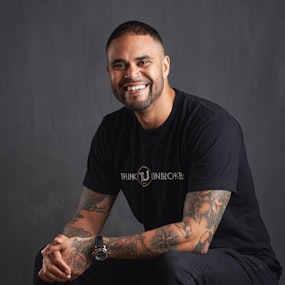
Michael Unbroken
Coach
Michael is an entrepreneur, best-selling author, speaker, coach, and advocate for adult survivors of childhood trauma.
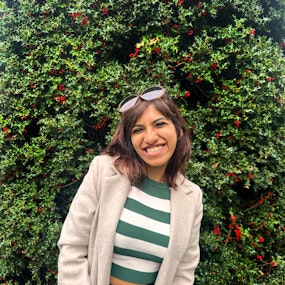
Dr. Prarthana Shah
Doctor and Integrative Health Coach
I am a doctor specialised in preventative cardiovascular medicine and am also an integrative health coach certified by Duke uni.
I work with patients to reduce their cvd Risk.
Buova is my health coaching practice where I work with people around the globe to create lasting lifestyle change and become their healthiest, most fittest selves.
Welcome to The Think Unbroken Podcast!
Here are some of my favorite recent guests!























